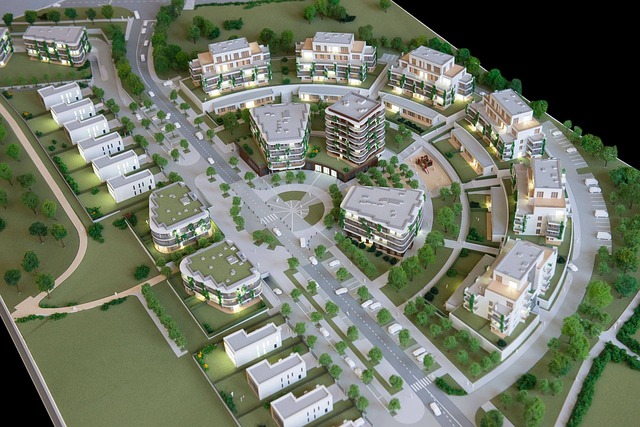Event planning for local businesses is a multifaceted approach that integrates community events as platforms to enhance business-community interactions and brand visibility while fostering engagement through personalized experiences. The success of these events relies on deep community knowledge, ensuring the activities are both engaging and supportive of the local economy and social ties. Strategic venue selection is key, as it sets the tone for the event, aligns with objectives, and provides practical support, including technical capabilities like audio-visual resources and Wi-Fi. The event agenda must be carefully designed to harmonize business goals with entertainment, facilitating direct interaction between businesses and consumers. A diverse range of activities, from professional development sessions to interactive entertainment, is essential for maintaining high engagement across the day. Post-event analysis using key performance indicators helps local businesses refine their strategies based on empirical evidence, ensuring informed decisions for future events that aim to leave a lasting positive impact on the community and enhance business growth. This data-driven cycle of event planning, execution, and review is vital for maintaining relevance and fostering sustained economic vitality within local business communities.
discover the transformative power of local events in fostering community spirit and elevating business visibility. This article delves into the nuances of event planning for local businesses, emphasizing the importance of strategic venue selection and agenda crafting to create compelling experiences that balance commercial objectives with entertainment. By leveraging community engagement and employing post-event analysis techniques, organizers can not only ensure the success of current events but also glean valuable insights for future endeavors. Join us as we explore the intricacies behind coordinating local events for maximum impact.
- Leveraging Community Engagement: How Local Events Boost Business Visibility
- Strategic Venue Selection: Choosing the Perfect Backdrop for Your Event
- Crafting a Compelling Event Agenda: Balancing Business Goals and Entertainment
- Post-Event Analysis: Measuring Success and Gathering Insights for Future Local Events
Leveraging Community Engagement: How Local Events Boost Business Visibility

Local events serve as pivotal touchpoints between communities and businesses, offering a unique opportunity for heightened visibility and engagement. Event planning tailored for local businesses is not merely about hosting an event; it’s about strategically integrating these enterprises into the fabric of community gatherings. By aligning events with the interests and needs of the neighborhood, local businesses can gain significant exposure, fostering brand recognition and loyalty. These occasions become more than transactions; they transform into experiences that resonate with attendees on a personal level, creating memorable associations with the participating businesses.
Moreover, successful event coordination involves a deep understanding of the community’s dynamics, ensuring that events are not only well-attended but also contribute positively to the local economy and social fabric. Effective event planning for local businesses requires a collaborative approach, where organizers work in tandem with business owners to curate activities that reflect the unique character of the area while showcasing the strengths of the participating businesses. This synergy not only amplifies business visibility but also solidifies the community’s support for local commerce, ultimately leading to sustainable growth and vibrant community engagement.
Strategic Venue Selection: Choosing the Perfect Backdrop for Your Event

Effective event planning for local businesses often hinges on the strategic selection of venues that complement and enhance the event’s objectives. A well-chosen venue not only provides a fitting backdrop but also contributes to the overall experience of attendees. Businesses must consider factors such as the venue’s capacity, accessibility, amenities, and ambiance to ensure it aligns with their event’s theme and purpose. Location plays a pivotal role; it should be easily accessible to the target audience, yet unique enough to leave a lasting impression. Additionally, local businesses should evaluate the technical facilities available at the venue, including audio-visual equipment, Wi-Fi connectivity, and space for exhibits or demonstrations. By meticulously assessing these elements, businesses can select a venue that seamlessly integrates with their event planning efforts, thereby maximizing engagement and impact.
In the realm of event coordination, the harmonious integration of the venue with the event’s narrative is paramount. Local businesses should aim to create an immersive environment that resonates with the theme and adds a layer of sophistication to the proceedings. The venue’s atmosphere can set the tone for the event, influencing the attendees’ perception and engagement. Therefore, it is crucial for businesses to engage with venues that offer versatile spaces which can be customized to fit the event’s needs. Whether it’s a local museum, park, or conference center, the venue should serve as an extension of the brand, reinforcing the business’s values and message through its architecture, aesthetic, and overall character. This strategic approach to venue selection is instrumental in elevating local events from ordinary to extraordinary, ensuring that every aspect of event planning for local businesses contributes to a memorable and successful occasion.
Crafting a Compelling Event Agenda: Balancing Business Goals and Entertainment

Crafting an event agenda that aligns with both business objectives and entertainment values is a delicate balancing act that underscores successful local events. Event planners for local businesses must strategically design each element of the itinerary to meet specific goals while ensuring the experience remains engaging and enjoyable for attendees. By integrating targeted sessions and workshops that showcase local products or services, these events serve as a platform for direct interaction between businesses and consumers, fostering brand awareness and customer loyalty. To enhance this, the inclusion of entertainment such as live music, performances, or interactive activities can enrich the event’s atmosphere, making it more memorable and drawing in a wider audience. This approach not only promotes local businesses but also contributes to a vibrant community event that reflects the unique character of the area.
Incorporating a diverse range of activities and features within the event agenda is essential for catering to different interests and maintaining high engagement levels throughout the event. For instance, morning segments can focus on educational seminars or professional development opportunities, while afternoon slots might feature more leisurely or recreational activities designed to offer respite and entertainment. By thoughtfully interspersing these elements, event planners can maximize participation and create a dynamic flow that keeps attendees interested and invested in the local businesses’ offerings. This careful orchestration of an event agenda is a cornerstone of event planning for local businesses, ensuring that each event not only achieves its business goals but also leaves participants with a lasting impression of the community and its enterprises.
Post-Event Analysis: Measuring Success and Gathering Insights for Future Local Events

Post-event analysis serves as a critical component in the event planning process for local businesses, offering a comprehensive evaluation of an event’s performance against its objectives. This analytical phase involves meticulous examination of various metrics, including attendee feedback, financial returns, and overall engagement levels. By collecting and scrutinizing data, organizers can identify strengths, weaknesses, opportunities, and threats that influenced the event’s outcome. This insight enables local businesses to refine their strategies for future events, ensuring they deliver even more successful and impactful experiences. Leveraging event planning expertise, businesses can optimize elements such as venue selection, participant demographics, and sponsorship models based on empirical evidence rather than assumptions. The insights gleaned from post-event analysis are invaluable, providing a roadmap for continuous improvement and a higher likelihood of achieving event goals that resonate with the local community and support business objectives.
Furthermore, the integration of advanced analytics and feedback tools within event planning for local businesses allows for a more nuanced understanding of attendee behavior and preferences. This data-driven approach not only measures success in terms of attendance, sales, and ROI but also delves into qualitative aspects such as participant satisfaction and brand perception. By analyzing this rich tapestry of information, event planners can craft strategies that enhance the attendee experience, foster stronger local partnerships, and amplify the impact of events within the business ecosystem. This iterative process of planning, executing, and refining local events is essential for long-term success and sustainability in the dynamic landscape of community engagement.
Effective event planning for local businesses is a multifaceted endeavor that hinges on community engagement, strategic venue selection, and a well-crafted agenda. By focusing on these elements, local events can significantly enhance business visibility and foster a sense of unity within the community. The post-event analysis provides invaluable insights into what worked and what could be improved, ensuring that each subsequent gathering builds upon the successes of the last. In conclusion, when local businesses collaborate to orchestrate successful events, they not only elevate their own profile but also enrich the cultural and economic fabric of their community. This synergy underscores the importance of event planning as a driver for local business growth and community development.






